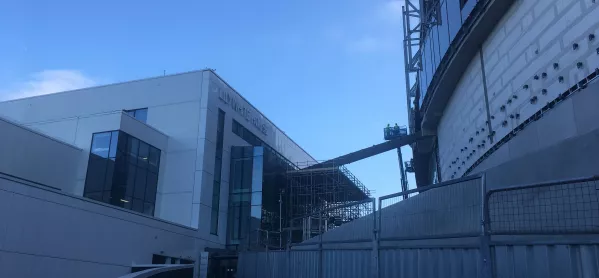Sometimes, people misunderstand my ruminating about Conservative education policy - how it solves its paradoxes, how it might square its circles - as support. It’s not. It’s informed, neutral journalistic analysis of what the education sector might have coming down the line.
With that in mind, I think I’ve had a moment of clarity on what the Tories should do next. It’s not necessarily what I would do if I were education secretary; it’s what I think a good Conservative political adviser should advise Damian Hinds to do, given the policy landscape that he now occupies.
If I were in that situation, I’d be looking for something that would make Mr Hinds look dynamic, something that would cover off most of his political priorities and something that would make Theresa May’s Downing Street operation happy.
In that situation, I would go hell for leather at expanding the number of super-selective sixth-form colleges around the country.
Currently, they are few in number, but they’re high-achieving: the likes of Harris Westminster and the London Academy of Excellence are now really hitting the numbers when it comes to top grades at A level and Oxbridge entries. There’s a new one open in Tottenham (pictured, above), news of one or two under discussion in Birmingham and Manchester and then there are the maths sixth-form free schools that No 10 is so keen to push.
These new schools tick a number of Conservative policy boxes:
- They are highly selective (but without needing more legislation - sixth forms have always been allowed to be selective).
- So far, they are high-performing.
- They are free schools.
- As Harris Westminster proves, they can form part of MATs and therefore fit into the current eco-system.
- They are all sponsored in some form by independent schools (remember, the state sector needs public-school “DNA”, apparently).
- They get the government out of its pickle that for years ministers have encouraged secondaries to open their own sixth forms, only for them to discover that they’re unaffordable and restrictive when it comes to student options.
- As such, these new large, selective sixth forms can afford economies of scale in the underfunded post-16 sector (the new Tottenham school hopes to have 700 on roll).
- Most importantly, they look like they are engines of social mobility, elevating poor hard-working kids towards bright new futures of PPE at Oxford.
Now imagine yourself to be policy adviser at the DfE: what’s not to like about this plan? Ok, ok, the colleges may be largely untested and they may become colonised by the ambitious middle classes, but it does look like a policy the pro-grammar lobby, No 10, the free school lobby and the big independent schools (who have so far been very resistant to doing the government’s bidding) could enthusiastically get behind.
There remains, I understand, serious concern in Whitehall and within MATs about the costs of such schools, but even so, in the hothouse of Westminster, surely these practical considerations are not enough to remove the political shine from this policy.
If I were Damian Hinds, I might even think about branding them as sixth-form grammar schools.
A sixth-form grammar school for every major town and city, anyone? Sounds like the kind of policy No 10 could get excited about. Even better - and more politically coherent - might be a sixth form grammar school in every Opportunity Area.
It’s not for me, mind. But Theresa May? I reckon she’d be pretty keen.
Ed Dorrell is head of content at Tes. He tweets @Ed_Dorrell
Want to keep up with the latest education news and opinion? Follow Tes on Twitter and Instagram, and like Tes on Facebook




